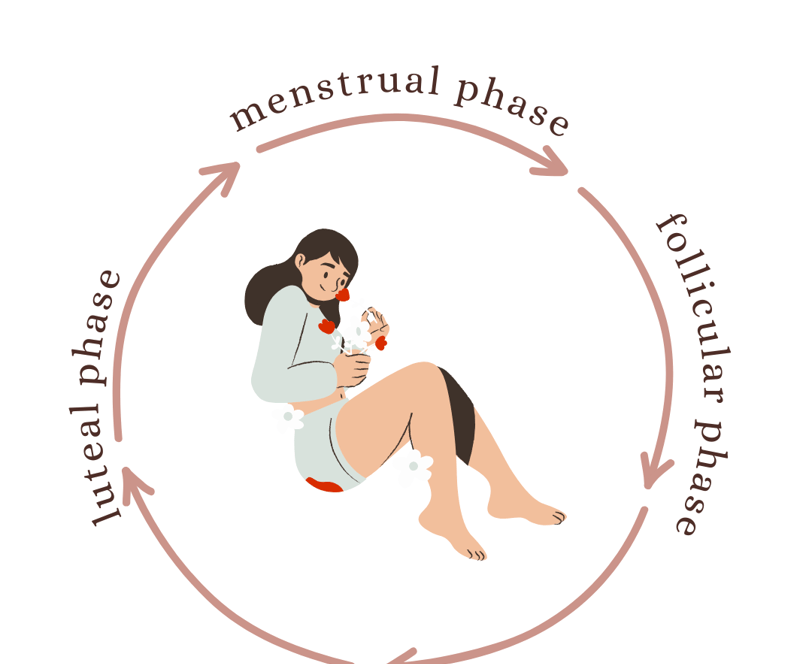Understanding and Managing Menstrual Disorders: Insights from the best gynecologist
Explore the diverse spectrum of menstrual disorders recognized by the American College of Obstetricians and Gynecologists (ACOG) and gain insights into how gynecologists play a crucial role in diagnosing and treating these conditions. From irregular cycles to dysmenorrhea and amenorrhea, discover the multifaceted approaches that encompass gynecological interventions, nutritional and lifestyle considerations, and hormonal treatments. Uncover the significance of maintaining reproductive health through proper nutrition, lifestyle choices, and personalized hormonal therapies. Empower yourself with knowledge on managing menstrual disorders for overall well-being. #WomensHealth #MenstrualDisorders #ACOGGuidelines
Dr Uma Mishra, Gynecologist
3/10/20242 min read


The American College of Obstetricians and Gynecologists (ACOG) recognizes several menstrual disorders that can affect women's reproductive health. Gynecologists play a crucial role in diagnosing and treating these disorders. Nutrition, lifestyle, and hormonal treatments can also contribute to managing these conditions. Here are some common menstrual disorders, along with information on gynecological intervention, nutrition, lifestyle, and hormonal treatments:
1. Menstrual Irregularities:
- Gynecological Intervention: Gynecologists can investigate irregular menstrual cycles, identifying potential causes such as hormonal imbalances, polycystic ovary syndrome (PCOS), thyroid disorders, or structural issues.
- Nutrition and Lifestyle: Maintaining a healthy weight through balanced nutrition and regular exercise can positively impact menstrual regularity.
- Hormonal Treatments: Hormonal contraceptives, such as birth control pills, may regulate menstrual cycles. In some cases, hormonal therapies may be prescribed to address specific underlying hormonal imbalances.
2. Dysmenorrhea (Menstrual Pain):
- Gynecological Intervention: Gynecologists can assess the severity of menstrual pain and identify potential causes. Conditions such as endometriosis or uterine fibroids may contribute to dysmenorrhea.
- Nutrition and Lifestyle: Dietary changes, such as reducing caffeine and increasing omega-3 fatty acids, may help alleviate menstrual pain. Regular exercise and stress management techniques can also be beneficial.
- Hormonal Treatments: Hormonal contraceptives or nonsteroidal anti-inflammatory drugs (NSAIDs) may be recommended to manage pain associated with dysmenorrhea.
3. Amenorrhea (Absent Menstruation):
- Gynecological Intervention: Gynecologists can assess potential causes of amenorrhea, including pregnancy, hormonal imbalances, thyroid disorders, or structural abnormalities.
- Nutrition and Lifestyle: Achieving and maintaining a healthy weight, proper nutrition, and managing stress can positively influence menstrual regularity.
- Hormonal Treatments: Hormonal therapies may be prescribed to address underlying hormonal imbalances contributing to amenorrhea.
4. Abnormal Uterine Bleeding:
- Gynecological Intervention: Gynecologists can investigate the causes of abnormal uterine bleeding, such as uterine fibroids, polyps, hormonal imbalances, or structural issues.
- Nutrition and Lifestyle: Maintaining a healthy lifestyle, including regular exercise and a balanced diet, can contribute to overall reproductive health.
- Hormonal Treatments: Hormonal contraceptives, progestin therapy, or other hormonal interventions may be recommended to manage abnormal uterine bleeding.
5. Premenstrual Syndrome (PMS) and Premenstrual Dysphoric Disorder (PMDD):
- Gynecological Intervention: Gynecologists can evaluate the severity of symptoms and provide management options. Differentiating between PMS and PMDD is crucial for appropriate intervention.
- Nutrition and Lifestyle: Dietary changes, regular exercise, and stress reduction techniques may help alleviate symptoms. Adequate sleep and maintaining a balanced lifestyle are also important.
- Hormonal Treatments: Hormonal contraceptives or selective serotonin reuptake inhibitors (SSRIs) may be prescribed for symptom management.
It's important to note that individual experiences may vary, and the appropriate treatment approach depends on the specific diagnosis and patient needs. Gynecologists often take a comprehensive approach, considering medical, nutritional, and lifestyle factors to provide personalized care for menstrual disorders. Always consult with a healthcare professional for personalized advice and treatment options.
Dr Uma Mishra is a leading Gynecologist in Noida with 18+ years of experience. Call to Book a Consult Today at 8130550269.
